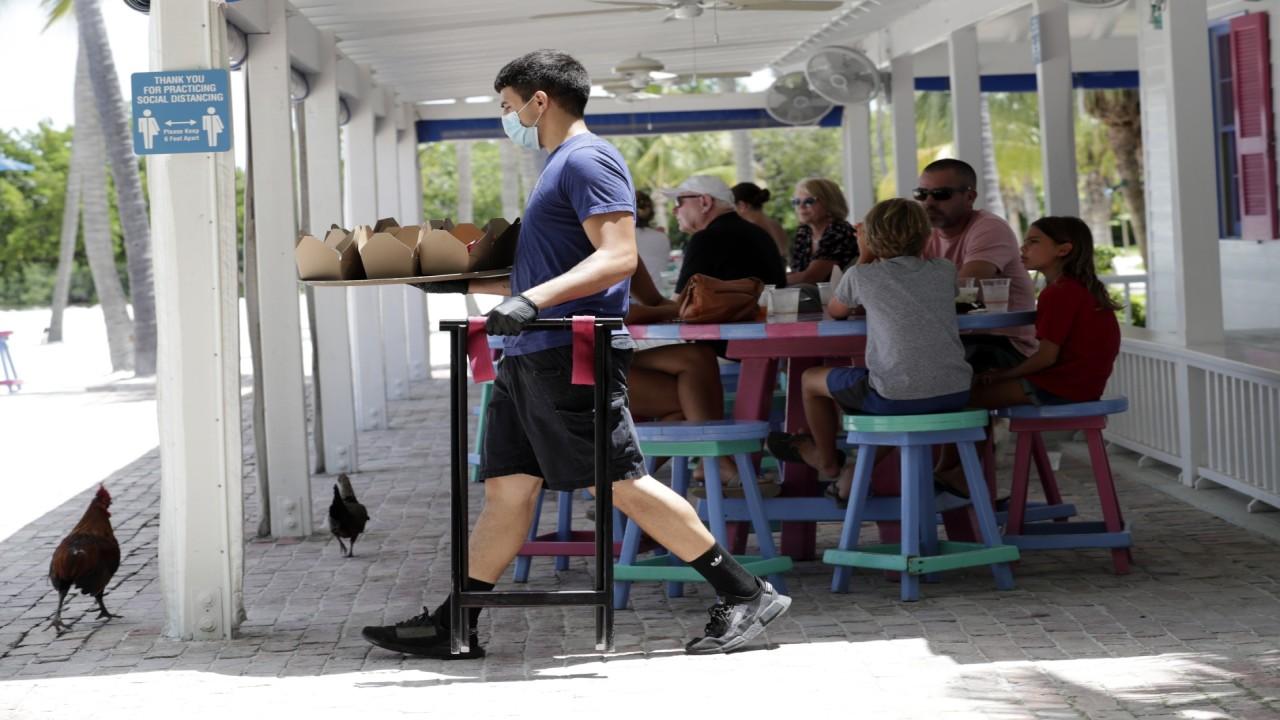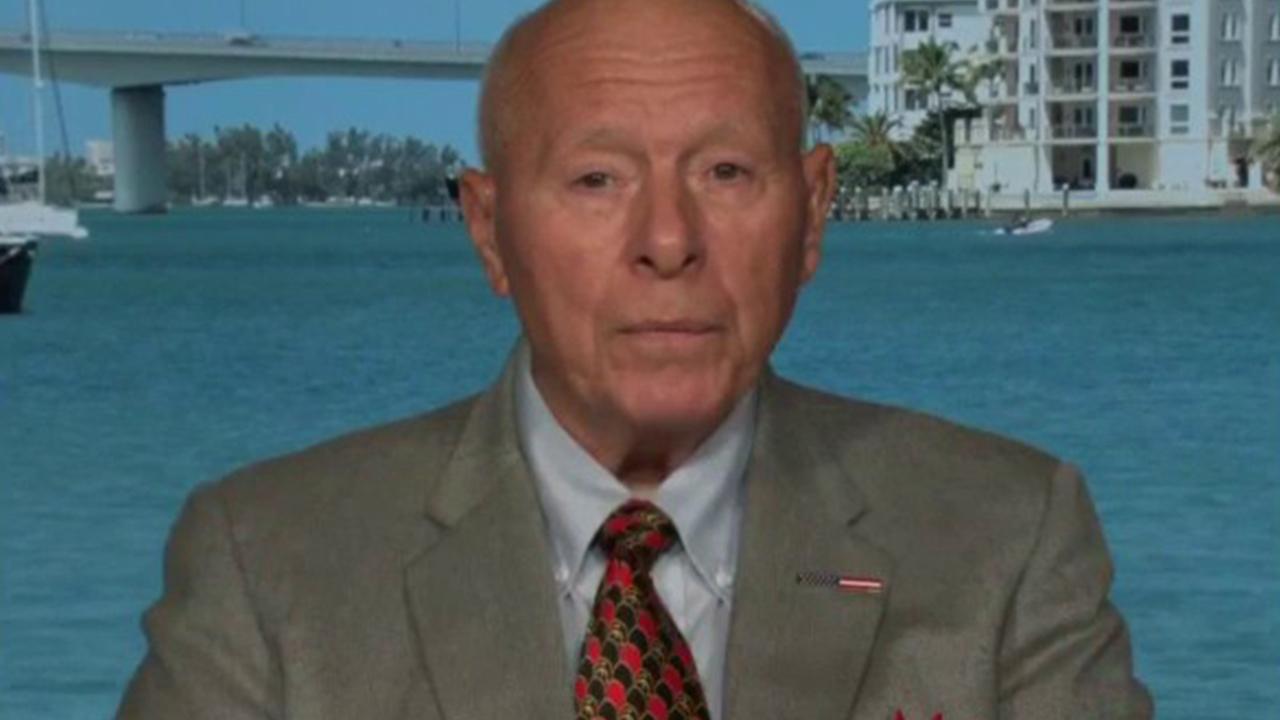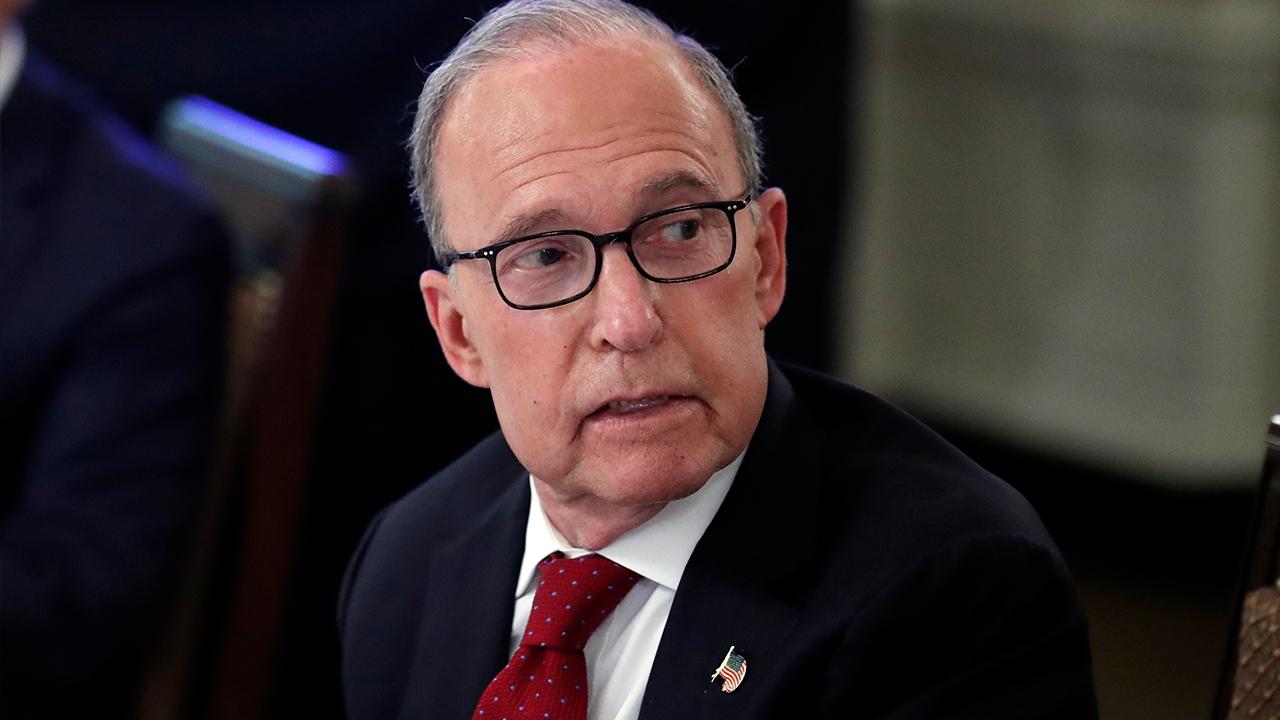Unemployment numbers, jobs news means we're looking at a restaurant recovery, America: Ex-McDonald's CEO
Reports of the job market's death have been greatly exaggerated
To paraphrase Mark Twain, reports of the job market's death have been greatly exaggerated.
Pundits and economic analysts expected the unemployment rate to rise as high as 20 percent in May, up from 14.7 percent the month before. Instead, headlines were rewritten and talking points scrubbed as the Bureau of Labor Statistics (BLS) reported that 2.5 million jobs were added and the unemployment rate fell to 13.3 percent.
KUDLOW SAYS NEXT CORONAVIRUS RELIEF PACKAGE NEEDS TO INCLUDE 'LONG-TERM' MEASURES TO SUPPORT ECONOMY
Call it the restaurant recovery.
It was a dark and dreary spring for the country's restaurant operators. In April, the National Restaurant Association estimated that 40 percent of the country's restaurants were closed, translating to eight million restaurant employees laid off or furloughed. As of that month, the loss of restaurant sales from mandated COVID-19 closures was $80 billion.
I heard about this pain firsthand from franchisees of McDonald's, Jimmy John's, Firehouse Subs, Papa John's, as well as from local restaurant owners. (Full disclosure: I served as CEO of McDonald's USA from 1991 to 1997.) While some quick-service operators were able to continue their drive-through business, and other restaurants tried to offset closures through food delivery, these were the proverbial band-aids on bullet holes.
Some of the pain from the COVID-19 crisis can't be undone.
We've seen a number of large traditional retailers seek bankruptcy protection or close underperforming stores; these companies have already been under pressure from Amazon and other companies without a large brick-and-mortar presence. These jobs likely aren't coming back.
UNEMPLOYMENT RATE, GOOD JOBS NEWS, TELL US THIS ABOUT CORONAVIRUS RECESSION
One notable exception in the retail space is the grocery industry: Grocers have helped the country survive the COVID-19 crisis, and delivery companies such as Instacart--which onboarded 250,000 new shoppers this spring--provided a lifeline for homebound customers and for laid-off workers who needed a "gig." These are American heroes.
But I'm bullish on a restaurant recovery, and here's why: Eating away from home is all about socialization, and you can't buy that experience on Amazon. Americans are eager to get out of their house and back to their favorite bar or local restaurants -- and states are increasingly willing to let them do so. (The public relations firm Berman and Company has tracked restaurant reopening regulations by state.)
The numbers support my optimism: Employment in restaurants and bars rose by 1.4 million in May, which the Bureau of Labor Statistics (BLS) reports was half the gain in total non-farm employment. This data suggests to me the Paycheck Protection Program--forgivable loans designed to help businesses retain or rehire staff--has had some positive effect.
As more states move to phased reopening plans that permit dine-in services without onerous capacity restrictions, industry employment should rise further. (A new Job Creators Network campaign called Flatten the Fear provides the data to support a more-aggressive reopening.)
WHAT HAPPENS TO YOUR UNEMPLOYMENT BENEFITS IF YOU REFUSE TO GO BACK TO WORK?
But I'm not entirely optimistic. For starters, I've spoken with dozens of restaurant operators who can't get employees to come back to work. The reason? They're making more money at home on unemployment than they would make on the job.
A report this week by the nonpartisan Congressional Budget Office confirms that extending the $600 unemployment insurance supplement would result in lower employment into 2021.
Congress was right to create this supplement to help laid-off employees during the crisis, but now needs to provide incentives for them to get back to work.
We also need to be careful with public policies that harm the recovery.
GET FOX BUSINESS ON THE GO BY CLICKING HERE
In my home state of Florida, a $15 minimum wage will appear on the ballot this fall; that's a body blow to restaurant operators who barely hung on during the crisis. On the West Coast, blue states like California and blue cities like Seattle have launched attacks on gig economy companies at the behest of unions who want to organize them.
Voters in California have an opportunity this fall to support a ballot measure to protect "gig" opportunities, but in the long-term legislators need to remember who they were elected to represent.
I share President Trump's excitement at Friday's jobs report. Now the hard work begins to ensure our V-shaped recovery doesn't turn into a W.
Ed Rensi is the chairman of F.A.T. Brands in Los Angeles. He is a former McDonald's USA CEO.






















